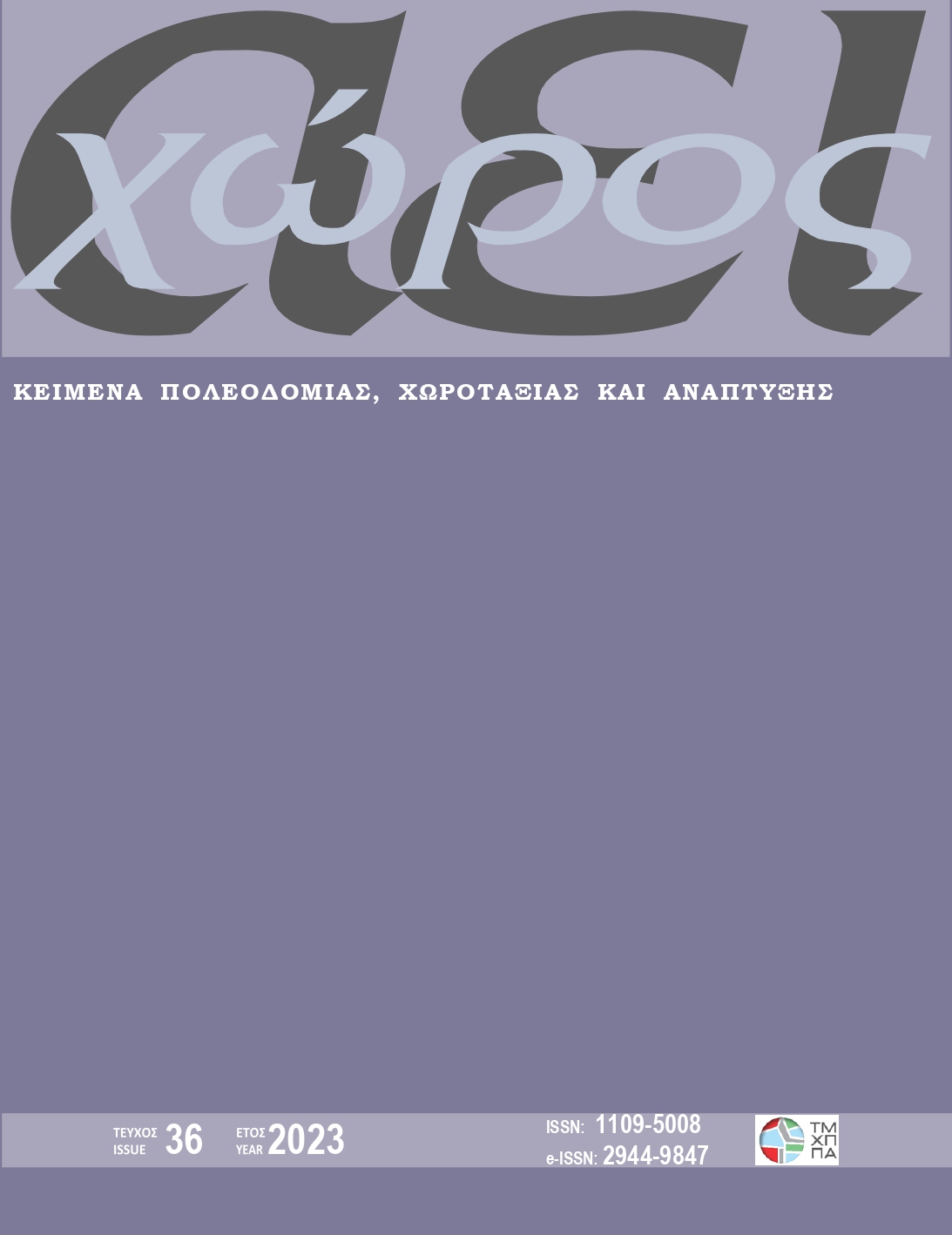Methodological evaluation approach for landscape management in the Regional Spatial Frameworks of the period 2017-2021
DOI:
https://doi.org/10.26253/heal.uth.ojs.aei.2023.1793Keywords:
Landscape, Spatial planning, European Landscape Convention, Regional spatial planning frameworksAbstract
Landscape is increasingly recognized as an important element of identity, quality of people's daily lives and economic development.
Most countries choose to integrate the landscape into spatial planning in order to manage more effectively the transformation of the landscape, and thus the importance of landscape as a "regulator" of space is realized.
A similar logic was followed by Greece, with the result that the landscape policy was adopted by the spatial planning at regional level, through the recently institutionalized Regional Spatial Frameworks.
The present work provides a brief conceptual overview of the landscape and a presentation of the evolution of landscape policy in Greece, proposes a methodology for evaluating the landscape policy as provided through the new Regional Spatial Frameworks (2017-2021), and explores, as a case study, the landscape that is under pressure from other activities as those are defined by the Regional Spatial Planning Framework of Eastern Macedonia and Thrace.
Downloads
Downloads
Published
How to Cite
Issue
Section
License

This work is licensed under a Creative Commons Attribution-NonCommercial 4.0 International License.

